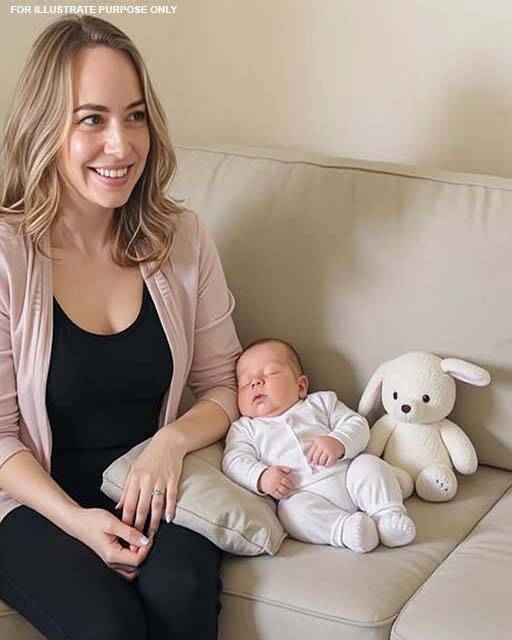My mother-in-law never liked me—but after I gave birth to our son, she crossed a line I never expected. She questioned my loyalty, and in response, I agreed to a DNA test. But I had one condition. And she never saw it coming.
Adam and I had weathered a lot together: two job losses, the rocky beginnings of his startup, and years of slowly building a life side by side. But through it all, I also had to deal with his mother—Denise.
From the very beginning, Denise made me feel like I wasn’t good enough. She never said it out loud, but her judgment was clear—in the way she looked at me, corrected me in public, and constantly compared me to Adam’s ex.
My background wasn’t glamorous. My family wasn’t wealthy. No country clubs or summer homes. And when Adam and I eloped—choosing a quiet ceremony instead of the wedding she wanted to orchestrate—she never forgave us. From that point on, she treated my entire family like they didn’t exist.
I hoped that having a child would soften her.
And for a brief moment, it seemed like it had. A week after I gave birth, she came by, held our baby boy, smiled sweetly, said all the right things. But after that… nothing. She ignored my messages. She didn’t follow up. Just a strange, cold silence.
I had no idea what storm was brewing beneath that stillness.
One night, after I’d put the baby to sleep, Adam joined me on the couch. I could tell by his posture—tense, uneasy—that something was wrong.
Then he said the words: “My mom thinks we should get a DNA test.”
He quickly added that his parents had read an article about paternity fraud, and they just “wanted to be sure,” that it would “clear the air.”
When he finished, I looked at him carefully and asked, “Do you think we should?”
He didn’t meet my eyes. “It might help put things to rest.”
Something inside me went quiet. I didn’t cry. I didn’t scream. I just said calmly, “Alright. We’ll do the test—on one condition.”
Adam blinked. “What condition?”
“We also test whether you are your father’s biological son.”
His mouth dropped open. “You’re serious?”
“As serious as your mother accusing me of cheating. If my integrity’s being questioned, so is everyone’s.”
He hesitated, but finally nodded. “Okay. That’s fair.”
A simple cheek swab was taken from our son at a local clinic. Getting a sample from Adam’s dad took a bit more creativity.
We invited his parents over for dinner a few days later. Denise brought one of her famous fruit pies. Adam chatted with his dad about golf, and even gave him an eco-friendly toothbrush he was testing for work.
After dinner, his dad used it. We collected the sample and sent both tests to the lab the next morning.
A few weeks later, our son turned one. We held a small party with just close family—cake, music, balloons. For a while, everything felt light again.
As the party was winding down and the last of the cake was being passed around, I stood up with an envelope in my hand.
“We have a little surprise,” I said with a smile. “Since there were doubts about our son’s paternity, Adam and I did a DNA test.”
Denise looked up from her wine. She smiled faintly, like she was already feeling vindicated.
I opened the envelope and read aloud: “He’s 100% Adam’s son.”
Denise’s smile vanished.
But we weren’t done.
Adam stepped beside me and held up a second envelope.
“As long as we were testing DNA…” he said, letting the sentence hang.
Denise looked confused. “What’s that?”
Adam opened the second envelope. He went pale. He stared at the page, then slowly turned to his father.
“I’m not your biological son,” he said quietly.
Silence fell over the room. Denise clutched her wine glass.
Then she exploded. “You had no right—!”
But Adam cut her off. “No. You had no right. You accused my wife. You insulted her. You tried to humiliate her. But in the end, you were the liar.”
Denise stood frozen. Then she collapsed into a chair, sobbing.
Adam’s father said nothing. He quietly grabbed his keys and left the house.
Denise tried to contact us countless times after that. Morning voicemails. Long, pleading texts. More voicemails.
We never responded.
But in that silence, I realized something deeper—I wasn’t just angry with Denise. I was heartbroken by Adam.
He hadn’t defended me.
He hadn’t stood up to his mother.
He let suspicion live between us. He let it poison our home.
That was what hurt the most.
We started therapy. Week by week, I released the grief I’d buried inside.
“It wasn’t just the DNA test,” I told him one day. “You didn’t trust me. I felt alone in our marriage.”
Adam didn’t argue. His eyes were full of tears. “I know. I’m so sorry. I was a coward. But I promise—I’ll spend the rest of my life proving I trust you.”
And so far… he has.
He cut off the relatives who kept feeding negativity. He protects me now. He listens to me like never before.
And I’ve forgiven him—not because I forgot what happened, but because he took full responsibility.
We haven’t seen Denise since.
Her last voicemail was a mix of half-apologies and manipulations. I deleted it halfway through and blocked her number.
Adam’s father filed for divorce not long after the birthday party. I don’t know what happened between them, and I don’t need to. He still visits us often and spoils our son like nothing ever changed.
Our son laughed, crawled, and eventually walked. Life moved on.
As for the DNA results? They’re tucked away in a drawer.
We haven’t looked at them since.
Because now, we know exactly who we are.
And more importantly—we know who doesn’t belong in our story.
